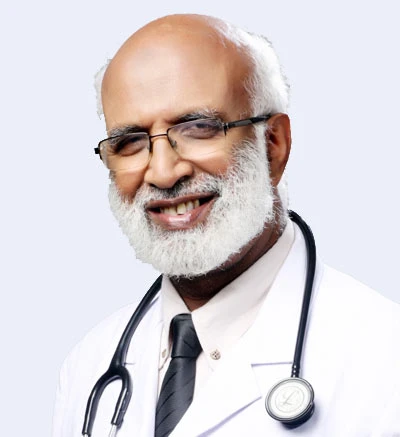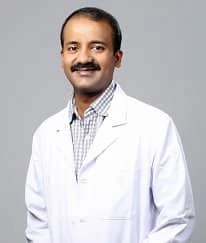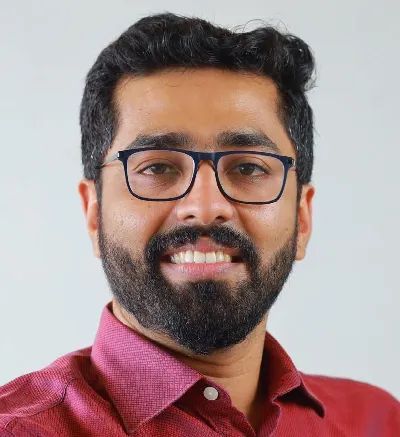The Department of General Medicine in our Starcare Hospital offers multi-speciality treatment for people suffering from various health illnesses. Our general physicians are experts in providing first-class treatment for patients to recover from Fever, Asthma, Hypertension, Thyroid, Liver Disease, Heart Disease, Diabetes, Pre-Diabetes, and Cholesterol. Our hospital is incorporated with highly efficient laboratory and other testing medical devices within the campus to offer people with easy access to all the diagnostic procedures and treatment options. Our healthcare team consists of prominent physicians of internal medicine along with nurses, medical assistants and highly skilled support staff.
It is a specialty of medicine that deals with diagnosing, preventing, and treating a wide range of acute and chronic diseases like Diabetes, asthma, Hypertension, Cholesterol, heart disease, fever, cough, chest pain, etc. The doctors who specialize in treating such conditions are called General Physicians. General Medicine deals with different diseases from head to toe. Dr. Abdulla Cherayakkat, MRCP(UK), Chief Physician and MD Starcare Hospital (the nearest hospital and Physician) Calicut, is a well-experienced Doctor in the medical profession. The doctor has further explained diagnosing and treating various health disorders in detail.
Fever- The most common disease that affects people. The general medicine doctor at our hospital conducts a physical examination and recommends a blood test if necessary. For high fever, medications like ibuprofen are prescribed by our general physician.
Asthma- It’s a disease that affects the airways of the lungs. This condition makes the airway narrow, swell, and produces extra mucus, which leads to difficulty breathing and causes wheezing and coughing. Asthma can usually be managed with rescue inhalers; sometimes, our general doctor prescribes antibiotics like azithromycin.
Hypertension- High blood pressure is a common cardiovascular disease. BP tends to increase with age without any specific reason in some adults. It can be treated by exercising regularly, eating a healthy diet with less salt, and taking medications that lower blood pressure.
Thyroid- It is a disorder that slows down the body’s metabolic rate. The most common conditions are hyperthyroidism and hypothyroidism. These problems may lead to weight loss or weight gain, fatigue, weakness, and, if left untreated, may lead to cancer. Taking thyroid hormone medicine every day can help control the condition.
Liver diseases- The liver is a vital organ essential for food digestion and eliminating toxic substances from our bodies. It’s caused by consuming excess alcohol, viruses, or some drugs that may affect liver function. Untreated liver disease may lead to liver failure, which is a life-threatening condition. Liver disorders can be treated with medication, and in severe conditions, our general medicine doctors recommend surgery as a treatment option.
Heart disease- Due to insufficient nutrients and oxygen, some parts of the heart or coronary arteries are damaged. Being overweight, having high BP, smoking, having diabetes, eating junk foods, etc., are some factors of heart disease. It can be treated with medications or surgery.
Diabetes, also called diabetes mellitus, is a group of diseases that result in too much sugar in the blood, which is high blood glucose. Type 1 is a chronic condition in which the pancreas produces little or no insulin. People need to administer insulin regularly using injections or insulin pumps. Type 2 is a chronic condition that affects how the body processes blood sugar. The most common risk factors include age above 45, overweight, and family history.
Pre-diabetes- A state in which blood sugar levels exceed normal yet lower than those of type 2 diabetes. A combination of genetic or environmental factors may cause both type 1 and 2 diabetes. Type 2 diabetes is typically the result of poor diet and lack of exercise. Some of these were perpetually since childhood. It can be prevented by maintaining a moderate weight, eating a balanced diet with less sugar, saturated fats, processed foods, and exercising.
Cholesterol- It is a waxy substance found in the blood. Cholesterol is essential for cell growth and repair, but excessive amounts may raise blood pressure and the risk of cardiovascular disease. You can develop fatty deposits in your blood vessels, eventually making it difficult for enough blood to flow through your arteries. Sometimes those deposits can break suddenly and form a clot leading to a heart attack or stroke. Unhealthy lifestyles often develop high cholesterol. A healthy diet, exercise, and sometimes medication can reduce high cholesterol. Your cholesterol values show how much cholesterol is circulating in your blood. Your normal cholesterol should be less than 200mg/dL. Borderline is 200 to 239 mg/dL and above 240 mg/dL. HDL or good cholesterol level should be 40mg/dL or higher, and LDL or bad cholesterol should be less than 100 mg/dL.
Let’s take a look at foods to be avoided for cholesterol-
Red meat, whipped cream, Butter, processed meats, cheese, baked foods, fried foods, egg yolks.
Foods that help reduce cholesterol are-
Oatmeal, apples, prunes, and beans are rich in soluble fibers; focus more on eating fruits, veggies, and whole grains. These reduce cholesterol absorption in your bloodstream and help your body flush it out. Warm water and cucumber juice in the morning is one of the most nutritious and easiest healthy drinks.
Regular walking burns extra calories, increases good cholesterol, and reduces bad cholesterol and triglycerides.

Timing : 9AM - 5PM
Days :Monday - Saturday
Peripheral Vascular Interventions – Aortic, Iliac, Femoral and Below Knee Interventions for limb salvage, Renal, Carotid and Subclavian Interventions
250 Pacemakers and ICD Implants
Balloon Mitral and other Valvuloplasties
Complex Angioplasties and other coronary interventions
Total Occlusions
Transthoracic and Transesophageal Echocardiograms
MBBS – Calicut Medical College, Calicut
MD (Gen Medicine) – Kasturba Medical College, Mangalore University, Mangalore
DM (Cardiology) – Jayadeva Institute of Cardiology – Bangalore University, Bangalore

Timing : 9AM - 5PM
Days : Monday - Saturday
Dr. Mohammed Ajmal K, Consultant in Department of General Medicine has more than 5 years of experience. His areas of interest include management of infectious diseases, diabetes mellitus, hypertension and other General medicine conditions.
MD General Medicine: Goverment Medical College, Kottayam
Diplomate in National Board General Medicine: Medical College
MBBS: Goverment Medical College Kozhikode
Previously worked as Assistant Professor in the Department of General Medicine, KMCT Medical College, and as Registrar in the Department of General Medicine, MIMS Kozhikode.
MBBS, MD (General Medicine)Fellowship In Critical Care,CPCDM
Consultant
Consult a Doctor
Dr. Jeslin V James holds an MBBS and MD in General Medicine from Rajiv Gandhi University, completing his education in 2015. With over seven years of experience in critical care and internal medicine, he has honed his skills through a fellowship at Apollo Hospital. He has previously worked at Iqraa Hospital Calicut for four years, followed by two years at Nirmala Hospital. Since May 2022, he has been a valued member of the Starcare ICU team.
Copyright 2025 Starcare Healthcare. All rights reserved.
Designed & Developed by Appac Mediatech Pvt Ltd.